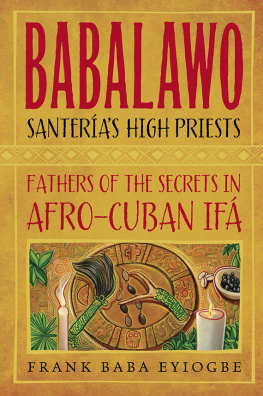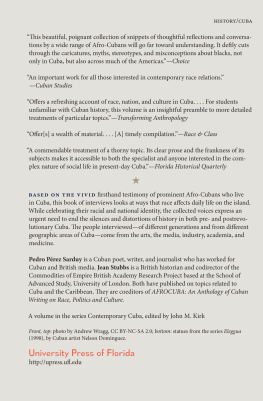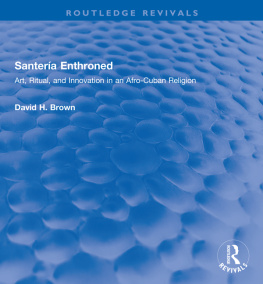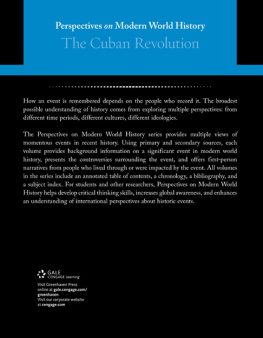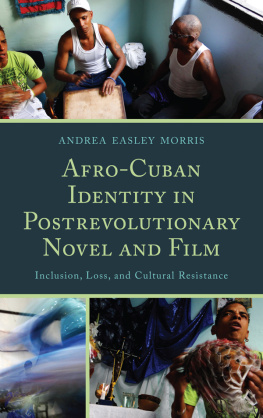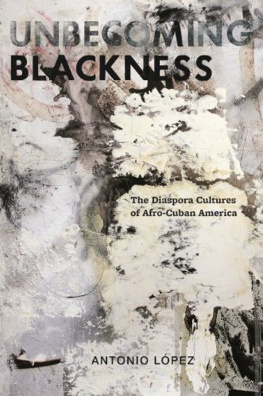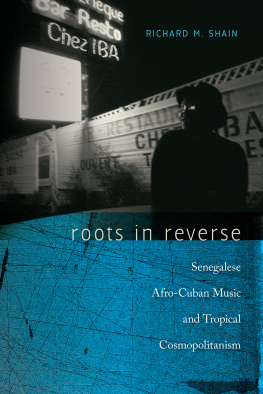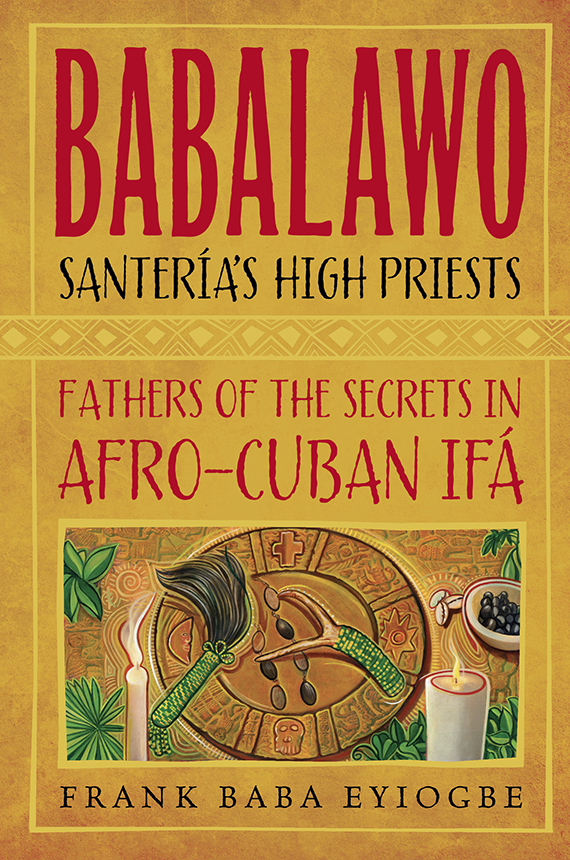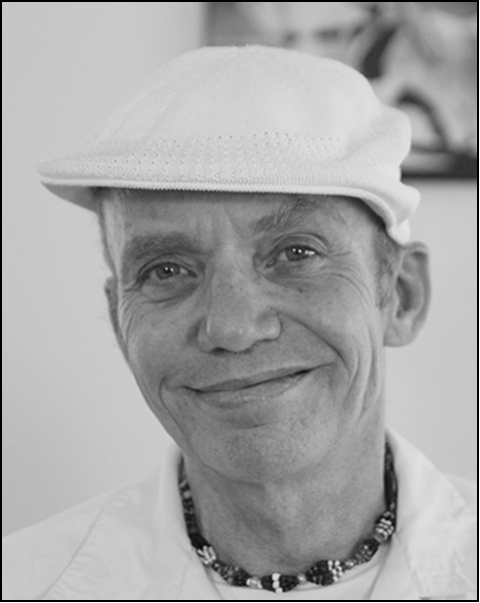Frank Baba Eyiogbe has been practicing Santera for over twenty-seven years: twenty-three years as a santero (Orisha priest) and eighteen years as a babalawo (initiated in Cuba). Frank has achieved the highest level of babalawo, Olofista. He created the premier Santera website www.orishanet.org and has been a guest on NPRs All Things Considered and The Global Guru and was interviewed for LIFE magazine. He has guest lectured at the University of Washington as well as UC Berkeley.

Llewellyn Publications
Woodbury, Minnesota
Copyright Information
Babalawo, Santeras High Priests: Fathers of the Secrets in Afro-Cuban If 2015 by Frank Baba Eyiogbe
All rights reserved. No part of this book may be used or reproduced in any matter whatsoever, including Internet usage, without written permission from Llewellyn Publications, except in the form of brief quotations embodied in critical articles and reviews.
As the purchaser of this e-book, you are granted the non-exclusive, non-transferable right to access and read the text of this e-book on screen. The text may not be otherwise reproduced, transmitted, downloaded, or recorded on any other storage device in any form or by any means.
Any unauthorized usage of the text without express written permission of the publisher is a violation of the authors copyright and is illegal and punishable by law.
First e-book edition 2015
E-book ISBN: 9780738744087
Cover design by Kevin R. Brown
Cover illustration: Rudy Gutierrez; additional images: iStockphoto.com/8464821/Axusha
Editing by Jennifer Ackman
All photographs in this book were taken by Frank Baba Eyiogbe except the photo of Pete Rivera in the epilogue, page , is courtesy of Angel L. Rivera.
Llewellyn Publications is an imprint of Llewellyn Worldwide Ltd.
Llewellyn Publications does not participate in, endorse, or have any authority or responsibility concerning private business arrangements between our authors and the public.
Any Internet references contained in this work are current at publication time, but the publisher cannot guarantee that a specific reference will continue or be maintained. Please refer to the publishers website for links to current author websites.
Llewellyn Publications
Llewellyn Worldwide Ltd.
2143 Wooddale Drive
Woodbury, MN 55125
www.llewellyn.com
Manufactured in the United States of America
For Elizabeth Felix-Discussion (Oloy Om Ob),
the greater half of the calabash of my existence.
Apeteb Ibor, Apeteb Iboya, Apeteb Ibochech
Acknowledgments
First and foremost I want to thank my beloved wife and apeteb Elizabeth Felix-Discussion (Oloy Om Ob). This book could never have existed without you, your patience with my interminable hours of writing and endless first drafts, and your constant care when I was ill. Your love, support, and belief in this book made it possible. I owe you a dream vacation.
To our precious ibeyis (twins), Xochitl (Ob Om) and Emiliano (Alamit): you two are the light of my life. More than anything, this book is for you.
To my Oluwo Siway (padrino) Pete Rivera (Od Ogund): You brought me into the world of If, a gift truly beyond measure and price. Your oddun allows you to initiate only two babalawos. It was my great good fortune that you chose me to be one of those two. You were like a second father to me, and you taught me how to work in a world of ach, and you dont necessarily have to do anything big or complex to achieve tremendous results. I couldnt ask for a better padrino.
To my oyugbona Miguelito Perez Alvarez (Ogbe Dandy): your immense wealth of knowledge of If and your patience with my endless questions made me the babalawo I am today. I am immensely proud to be your godchild. Thank you and Padrino Pete for helping me realize my childhood dream: to learn the secrets of the universe.
To my padrino Guillermo Diago (Ob B): You taught me hard. You taught me well. And I will be forever grateful to you. Iba bay ton (rest in peace).
To all three of my padrinos: most of what is in this book, and most of what I know, I learned at your feet. The mistakes are mine.
My thanks go to all the babalawos I have had the privilege of spending time with inside and outside the igbodn (initiation room) , whether in Havana or in the United States. Im afraid to name any of you because I know I would forget someone important, but you know who you are.
I would also like to thank Elysia Gallo, senior acquisitions editor at Llewellyn, for taking a chance on a first-time writer. You made a monumental task so much smoother through your encouragement, patience, and timely advice.
Contents
: What Is If?
: How If Works
: Babalawo
: If Comes to Cuba
: Lucum
: Orichas and Powers
: Initiations
: Ebb: Sacrifices and Offerings
: Odduns
: Ways of Power: Ach at OgbogbaPower and Balance
: Women and Feminine Power in If
: Tata Gaitn
Notes on the Writing of This Book
There are a number of protocols I have followed in this book that I feel should be explained, including the names of the religion and of priestesses and priests, the spelling of Lucum terms, and the use (or lack thereof) of the names of odduns (divination signs) associated with the stories and proverbs found in this book.
Whats in a Name?
The religion most people know as Santera is also known as La Regla Lucum (The Rule of the Lucum), La Regla Ocha (The Rule of Ocha or Orichas), or simply Lucum, Ocha, or La Religion (The Religion). Lucum was originally the term used for people brought to Cuba from the various African nations, now known as the Yoruba. These days some in the religion take exception to the term Santera as they believe it implies our religion is much more syncretic than it actually is or because they feel the term is a reminder of slavery times. In actuality, the Catholic saints were used to hide the orichas (goddess or god) , and there was very little mixing of the two religions at all. Santeras and santeros are also known as iworos or olorichas (an oricha priest), words denoting priest and one who has an oricha. And as we will discover in , the early Lucums deliberately subverted Christianity to fit their own needs, using only the aspects of the Western religion that suited their own needs and worldview.
Names of babalawos are followed by their oddun in If in parentheses; for example, Pete Rivera (Od Ogund) or Miguelito Perez Alvarez (Ogbe Dandy). Among one another, babalawos often refer to each other by their odduns rather than their names or will combine the two. For instance, I am often called Frank Baba Eyiogbe or simply Baba Eyiogbe.
Olorichas (santeros) have the names given to them by their oricha during their initiation in parentheses after their names: i.e., Guillermo Diago (Ob B-ibae). The word ibae is often used here for priests who have passed away. This is our equivalent to rest in peace in English.
Language
Many of the terms in this book are in a language called Anag or Lucum, a language developed in Cuba that evolved from the Yoruba language. Anag is a liturgical language, used mainly in prayers, songs, and religious terms. Unfortunately, very few people are able to speak the language conversationally anymore. The tongue is partially a mix of the different dialects slaves brought to the island, with the Oy and Egbado dialects having the greatest influence. Some of the words come from or iyinle (deep words), which are archaic forms of speech used by the old priests, and often the literal meanings of these words are lost in both Cuba and Africa. The Anag language in many ways has become locked in time to when the slaves came to Cuba, mainly in the nineteenth century.

